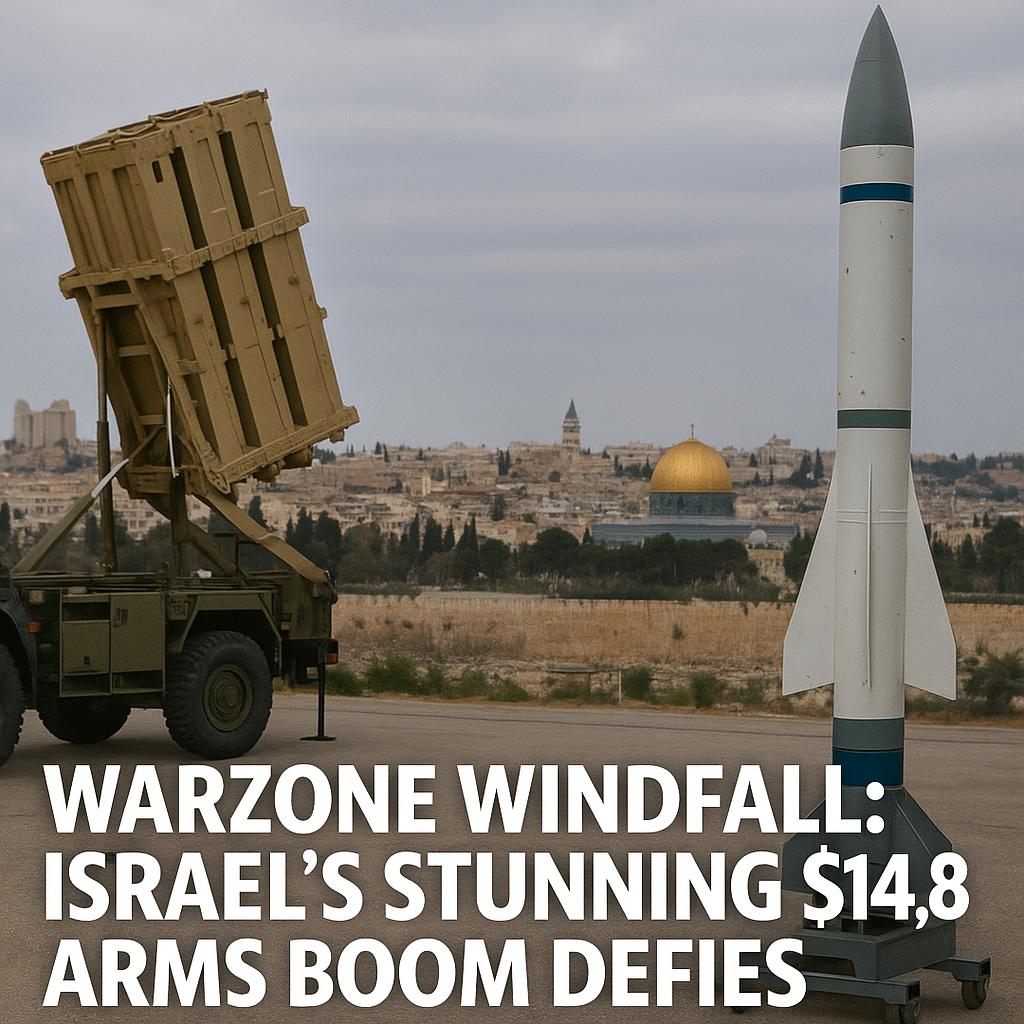While Russia’s arms exports have plummeted by 92% under the weight of Ukraine war sanctions, Israel has stunned the global defense community by reporting a record-breaking $14.8 billion in weapons exports in 2024, according to official government figures. That’s a 13% increase over 2023—despite Israel simultaneously facing international condemnation over its ongoing military campaign in Gaza.
From Isolation to Export Explosion
This unexpected surge highlights a stark irony in modern warfare: military conflict is not just a geopolitical act—it’s a sales pitch. Israeli missiles that intercepted Houthi rockets and drones used over Gaza are now being marketed as “combat-proven” to eager buyers worldwide.
Europe, despite voicing human rights concerns, accounted for 54% of these exports ($8 billion). Germany alone secured a $3.8 billion deal for the Arrow-3 missile defense system, showcasing the growing divide between diplomatic rhetoric and defense procurement reality.
But it’s not just the West. In a post-sanction world where Russia’s arms empire is collapsing, Israel has emerged as a primary replacement, offering cutting-edge tech, rapid delivery, and battlefield-proven performance.
Buyers, Not Believers: The World’s Selective Outrage
The source of Israel’s arms boom lies not only in its military-industrial capabilities but also in shifting global priorities:
-
Russia’s export collapse created a supply vacuum.
-
NATO stockpiles are depleted due to support for Ukraine.
-
Fear of Iran and Middle East volatility has driven panic buying.
Interception Success, But At What Cost? Yemen’s Missile Fire Exposes Israel’s Defense Strain
Shockingly, even Arab nations are part of this shift. Arms deals with Arab countries spiked by 400%, totaling $1.8 billion. Morocco purchased Israeli howitzers, while the UAE reportedly placed covert drone orders—despite their prior support for Palestinian causes.
Meanwhile, India has become a shadow partner, sourcing 13% of its weapons from Israel, including systems reportedly used in Kashmir. The Philippines, increasingly wary of Chinese naval aggression, sourced 27% of its arms from Tel Aviv.
Top Israeli Exports of 2024
| System Type | % of Exports | Key Buyers |
|---|---|---|
| Missiles/Air Defense | 48% | Germany, India |
| Space/Satellite Tech | 8% | UAE, Morocco |
| Armored Vehicles | 9% | Philippines, Chile |
As Western countries like Spain canceled symbolic contracts ($325 million worth), Israel turned toward Asia and the Middle East. The diversification strategy paid off—neutralizing Western political pressure with new markets.
Israeli Defense Minister Israel Katz openly credited the Gaza operations for the global demand. “The world sees Israeli strength and seeks to be a partner to it,” he declared. In effect, Gaza became a weapons showroom.
Ethics vs Exports: The Combat-Testing Sales Model
Israel’s arms growth exposes a difficult truth: wars sell weapons, and buyers often ignore the source of those battles.
Unlike Russia, which faced crippling sanctions and bans, Israel remained largely immune, thanks to U.S. diplomatic cover and high-tech manufacturing. Precision drones and guided weapons outclassed Moscow’s aging inventory, while Israeli products were often demonstrated live during conflicts, offering undeniable “proof of performance.”
Israel Blasts Hezbollah’s Missile Cache in Beirut Strike — Lebanese President Fumes!
Even as UN investigators documented alleged war crimes in Gaza, Israeli defense contractors marketed the very same technologies used in urban destruction. Tunnel demolition techniques developed in Gaza are now being exported. Unmanned aerial vehicles (UAVs) responsible for building collapses are highlighted as “precision warfare tools.”
This approach has drawn both criticism and admiration. Analysts note that while Israel still commands a relatively small 3.1% of the global arms trade, its annual growth outpaces nearly every other arms exporter, including the U.S.
Why Russia Failed and Israel Thrived:
-
Sanction Shield: Israel avoided Russia-style bans via global alliances.
-
Technology First: Precision drones replaced quantity-based arsenals.
-
Real-Time Demonstrations: Live operations outperformed military expos.
While Russia’s war crippled its arms economy, Israel’s military activity became a 24/7 infomercial. As one global defense analyst put it: “Nothing sells like live-fire testing.”
When Morality Meets Militarism
Israel’s meteoric rise in arms exports during its most controversial war in decades presents a complex moral dilemma. It shows that in the world of global arms trade, pragmatism often trumps principle. Nations may publicly denounce violence, but they still seek the tools of war—especially when those tools are tested under the most extreme conditions.
The Gaza conflict, while condemned globally, has paradoxically boosted Israel’s defense industry. As markets evolve and alliances shift, Tel Aviv has proven it can weaponize not just its arsenal, but its global isolation.
This is not just a sales record—it’s a case study in wartime opportunism.

